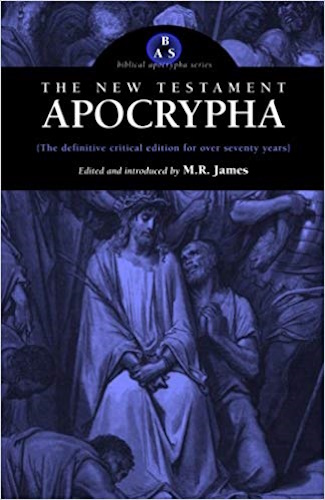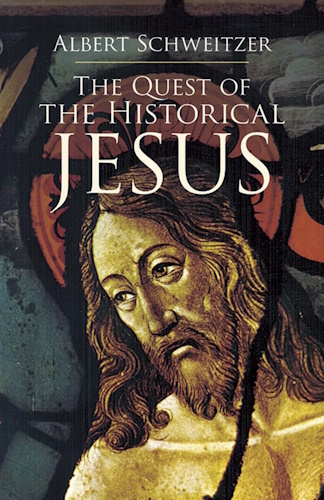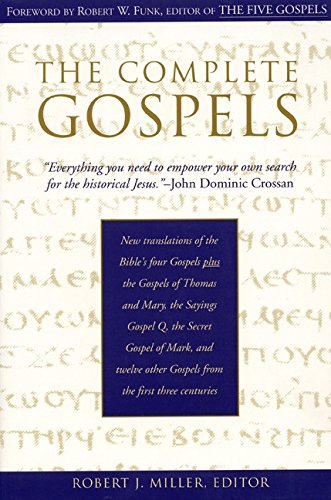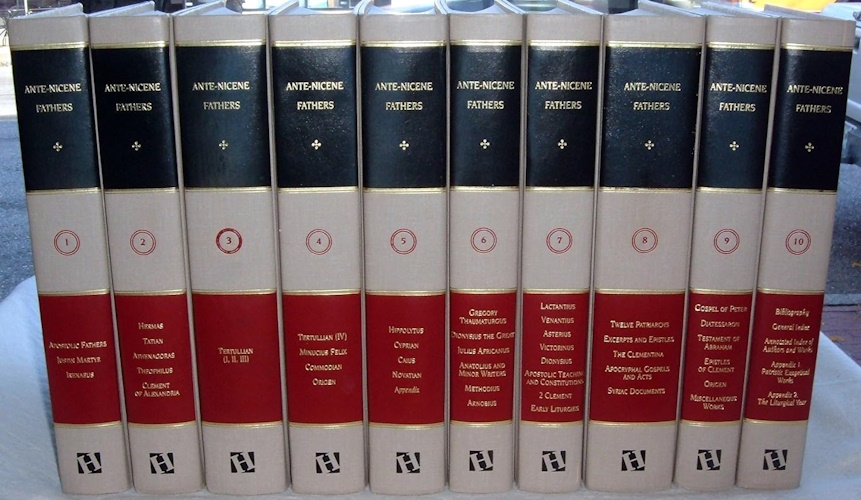
The Martyrdom Of Ignatius
Chapter 1
Desire Of Ignatius For Martyrdom
When Trajan, not long since, succeeded to the empire of the Romans, Ignatius, the disciple of John the apostle, a man in all respects of an apostolic character, governed the Church of the Antiochians with great care, having with difficulty escaped the former storms of the many persecutions under Domitian, inasmuch as, like a good pilot, by the helm of prayer and fasting, by the earnestness of his teaching, and by his [constant spiritual labour, he resisted the flood that rolled against him, fearing [only] lest he should lose: any of those who were deficient in courage, or apt to suffer from their simplicity. Wherefore he rejoiced over the tranquil state of the Church, when the persecution ceased for a little time, but was grieved as to himself, that he had not yet attained to a true love to Christ, nor reached the perfect rank of a disciple. For he inwardly reflected, that the confession which is made by martyrdom, would bring him into a yet more intimate relation to the Lord. Wherefore, continuing a few years longer with the Church, and, like a divine lamp, enlightening every one's understanding by his expositions of the [Holy] Scriptures, he [at length] attained the object of his desire.
Chapter 2
Ignatius Is Condemned By Trajan
For Trajan, in the ninth year of his reign, being lifted up [with pride], after the victory he had gained over the Scythians and Dacians, and many other nations, and thinking that the religious body of the Christians were yet wanting to complete the subjugation of all things to himself, and [thereupon] threatening them with persecution unless they should agree to worship daemons, as did all other nations, thus compelled all who were living godly lives either to sacrifice [to idols] or die. Wherefore the noble soldier of Christ [Ignatius], being in fear for the Church of the Antiochians, was, in accordance with his own desire, brought before Trajan, who was at that time staying at Antioch, but was in haste [to set forth] against Armenia and the Parthians. And when he was set before the emperor Trajan, [that prince] said unto him, "Who art thou, eked wretch, who settest thyself to transgress our commands, and persuadest others to do the same, so that they should miserably perish?" Ignatius replied, "No one ought to call Theophorus wicked; for all evil spirits have departed from the servants of God. But if, because I am an enemy to these [spirits], you call me wicked in respect to them, I quite agree with you; for inasmuch as I have Christ the King of heaven [within me], I destroy all the devices of these [evil spirits]." Trajan answered, "And who is Theophorus?" Ignatius replied, "He who has Christ within his breast." Trajan said, "Do we not then seem to you to have the gods in our mind, whose assistance we enjoy in fighting against our enemies?" Ignatius answered, "Thou art in error when thou callest the daemons of the nations gods. For there is but one God, who made heaven, and earth, and the sea, and all that are in them; and one Jesus Christ, the only-begotten Son of God, whose kingdom may I enjoy." Trajan said, "Do you mean Him who was crucified under Pontius Pilate?" Ignatius replied, "I mean Him who crucified my sin, with him who was the inventor of it, and who has condemned [and cast down] all the deceit and malice of the devil under the feet of those who carry Him in their heart." Trajan said, "Dost thou then carry within thee Him that was crucified?" Ignatius replied, "Truly so; for it is written, 'I will dwell in them, and walk in them.'" Then Trajan pronounced sentence as follows: "We command that Ignatius, who affirms that he carries about within him Him that was crucified, be bound by soldiers, and carried to the great [city] Rome, there to be devoured by the beasts, for the gratification of the people." When the holy martyr heard this sentence, he cried out with joy, "I thank thee, O Lord, that Thou hast vouchsafed to honour me with a perfect love towards Thee, and hast made me to be bound with iron chains, like Thy Apostle Paul." Having spoken thus, he then, with delight, clasped the chains about him; and when he had first prayed for the Church, and commended it with tears to the Lord, he was hurried away by the savage cruelty of the soldiers, like a distinguished ram the leader of a goodly flock, that he might be carried to Rome, there to furnish food to the bloodthirsty beasts.
Chapter 3
Ignatius Sails To Smyrna
Wherefore, with great alacrity and joy, through his desire to suffer, he came down from Antioch to Seleucia, from which place he set sail. And after a great deal of suffering he came to Smyrna, where he disembarked with great joy, and hastened to see the holy Polycarp, [formerly] his fellow-disciple, and [now] bishop of Smyrna. For they had both, in old times, been disciples of St. John the Apostle. Being then brought to him, and having communicated to him some spiritual gifts, and glorying in his bonds, he entreated of him to labour along with him for the fulfilment of his desire; earnestly indeed asking this of the whole Church (for the cities and Churches of Asia had welcomed the holy man through their bishops, and presbyters, and deacons, all hastening to meet him, if by any means they might receive from him some spiritual gift), but above all, the holy Polycarp, that, by means of the wild beasts, he soon disappearing from this world, might be manifested before the face of Christ.
Chapter 4
Ignatius Writes To The Churches
And these things he thus spake, and thus testified, extending his love to Christ so far as one who was about to secure heaven through his good confession, and the earnestness of those who joined their prayers to his in regard to his [approaching] conflict; and to give a recompense to the Churches, who came to meet him through their rulers, sending letters of thanksgiving to them, which dropped spiritual grace, along with prayer and exhortation. Wherefore, seeing all men so kindly affected towards him, and fearing lest the love of the brotherhood should hinder his zeal towards the Lord, while a fair door of suffering martyrdom was opened to him, he wrote to the Church of the Romans the Epistle which is here subjoined.
(See the Epistle as formerly given.)
Chapter 5
Ignatius Is Brought To Rome
Having therefore, by means of this Epistle, settled, as he wished, those of the brethren at Rome who were unwilling [for his martyrdom]; and setting sail from Smyrna (for Christophorus was pressed by the soldiers to hasten to the public spectacles in the mighty [city] Rome, that, being given up to the wild beasts in the sight of the Roman people, he might attain to the crown for which he strove), he [next] landed at Troas. Then, going on from that place to Neapolis, he went [on foot] by Philippi through Macedonia, and on to that part of Epirus which is near Epidamnus; and finding a ship in one of the seaports, he sailed over the Adriatic Sea, and entering from it on the Tyrrhene, he passed by the various islands and cities, until, when Puteoli came in sight, he was eager there to disembark, having a desire to tread in the footsteps of the Apostle Paul. But a violent wind arising did not suffer him to do so, the ship being driven rapidly forwards; and, simply expressing his delight over the love of the brethren in that place, he sailed by. Wherefore, continuing to enjoy fair winds, we were reluctantly hurried on in one day and a night, mourning [as we did] over the coming departure from us of this righteous man. But to him this happened just as he wished, since he was in haste as soon as possible to leave this world, that he might attain to the Lord whom he loved. Sailing then into the Roman harbour, and the unhallowed sports being just about to close, the soldiers began to be annoyed at our slowness, but the bishop rejoicingly yielded to their urgency.
Chapter 6
Ignatius Is Devoured By The Beasts At Rome
They pushed forth therefore from the place which is called Portus; and (the fame of all relating to the holy martyr being already spread abroad) we met the brethren full of fear and joy; rejoicing indeed because they were thought worthy to meet with Theophorus, but struck with fear because so eminent a man was being led to death. Now he enjoined some to keep silence who, in their fervent zeal, were saying that they would appease the people, so that they should not demand the destruction of this just one. He being immediately aware of this through the Spirit, and having saluted them all, and begged of them to show a true affection towards him, and having dwelt [on this point] at greater length than in his Epistle, and having persuaded them not to envy him hastening to the Lord, he then, after he had, with all the brethren kneeling [beside him], entreated the Son of God in behalf of the Churches, that a stop might be put to the persecution, and that mutual love might continue among the brethren, was led with all haste into the amphitheatre. Then, being immediately thrown in, according to the command of Caesar given some time ago, the public spectacles being just about to close (for it was then a solemn day, as they deemed it, being that which is called the thirteenth in the Roman tongue, on which the people were wont to assemble in more than ordinary numbers), he was thus cast to the wild beasts close, beside the temple, that so by them the desire of the holy martyr Ignatius should be fulfilled, according to that which is written, "The desire of the righteous is acceptable [to God]," to the effect that he might not be troublesome to any of the brethren by the gathering of his remains, even as he had in his Epistle expressed a wish beforehand that so his end might be. For only the harder portions of his holy remains were left, which were conveyed to Antioch and wrapped in linen, as an inestimable treasure left to the holy Church by the grace which was in the martyr.
Chapter 7
Ignatius Appears In A Vision After His Death
Now these things took place on the thirteenth day before the Kalends of January, that is, on the twentieth of December, Sun and Senecio being then the consuls of the Romans for the second time. Having ourselves been eye-witnesses of these things, and having spent the whole night in tears within the house, and having entreated the Lord, with bended knees and much prayer, that He would give us weak men full assurance respecting the things which were done, it came to pass, on our filling into a brief slumber, that some of us saw the blessed Ignatius suddenly standing by us and embracing us, while others beheld him again praying for us, and others still saw him dropping with sweat, as if he had just come from his great labour, and standing by the Lord. When, therefore, we had with great joy witnessed these things, and had compared our several visions together, we sang praise to God, the giver of all good things, and expressed our sense of the happiness of the holy [martyr]; and now we have made known to you both the day and the time [when these things happened], that, assembling ourselves together according to the time of his martyrdom, we may have fellowship with the champion and noble martyr of Christ, who trode under foot the devil, and perfected the course which, out of love to Christ, he had desired, in Christ Jesus our Lord; by whom, and with whom, be glory and power to the Father, with the Holy Spirit, for evermore! Amen.
![]()
![]()
-
Urantia Book, 44:0.11 - The Celestial Artisans
Never in your long ascendancy will you lose the power to recognize your associates of former existences. Always, as you ascend inward in the scale of life, will you retain the ability to recognize and fraternize with the fellow beings of your previous and lower levels of experience. Each new translation or resurrection will add one more group of spirit beings to your vision range without in the least depriving you of the ability to recognize your friends and fellows of former estates.
-
Princess Bride 1987 Wallace Shawn (Vizzini) and Mandy Patinkin (Inigo Montoya)
Vizzini: HE DIDN'T FALL? INCONCEIVABLE.
Inigo Montoya: You keep using that word. I do not think it means what you think it means. -
Urantia Book, 117:4.14 - The Finite God
And here is mystery: The more closely man approaches God through love, the greater the reality -- actuality -- of that man. The more man withdraws from God, the more nearly he approaches nonreality -- cessation of existence. When man consecrates his will to the doing of the Father's will, when man gives God all that he has, then does God make that man more than he is.
-
Urantia Book, 167:7.4 - The Talk About Angels
"And do you not remember that I said to you once before that, if you had your spiritual eyes anointed, you would then see the heavens opened and behold the angels of God ascending and descending? It is by the ministry of the angels that one world may be kept in touch with other worlds, for have I not repeatedly told you that I have other sheep not of this fold?"
-
Urantia Book, Foreword - 0:12.12 - The Trinities
But we know that there dwells within the human mind a fragment of God, and that there sojourns with the human soul the Spirit of Truth; and we further know that these spirit forces conspire to enable material man to grasp the reality of spiritual values and to comprehend the philosophy of universe meanings. But even more certainly we know that these spirits of the Divine Presence are able to assist man in the spiritual appropriation of all truth contributory to the enhancement of the ever-progressing reality of personal religious experience—God-consciousness.
-
Urantia Book, 1:4.3 - The Mystery Of God
When you are through down here, when your course has been run in temporary form on earth, when your trial trip in the flesh is finished, when the dust that composes the mortal tabernacle "returns to the earth whence it came"; then, it is revealed, the indwelling "Spirit shall return to God who gave it." There sojourns within each moral being of this planet a fragment of God, a part and parcel of divinity. It is not yet yours by right of possession, but it is designedly intended to be one with you if you survive the mortal existence.
-
Urantia Book, 1:4.1 - The Mystery Of God
And the greatest of all the unfathomable mysteries of God is the phenomenon of the divine indwelling of mortal minds. The manner in which the Universal Father sojourns with the creatures of time is the most profound of all universe mysteries; the divine presence in the mind of man is the mystery of mysteries.
-
Urantia Book, 1:4.6 - The Mystery Of God
To every spirit being and to every mortal creature in every sphere and on every world of the universe of universes, the Universal Father reveals all of his gracious and divine self that can be discerned or comprehended by such spirit beings and by such mortal creatures. God is no respecter of persons, either spiritual or material. The divine presence which any child of the universe enjoys at any given moment is limited only by the capacity of such a creature to receive and to discern the spirit actualities of the supermaterial world.
-
Urantia Book, 11:0.1 - The Eternal Isle Of Paradise
Paradise is the eternal center of the universe of universes and the abiding place of the Universal Father, the Eternal Son, the Infinite Spirit, and their divine co-ordinates and associates. This central Isle is the most gigantic organized body of cosmic reality in all the master universe. Paradise is a material sphere as well as a spiritual abode. All of the intelligent creation of the Universal Father is domiciled on material abodes; hence must the absolute controlling center also be material, literal. And again it should be reiterated that spirit things and spiritual beings are real.
-
Urantia Book, 50:6.4 - Planetary Culture
Culture presupposes quality of mind; culture cannot be enhanced unless mind is elevated. Superior intellect will seek a noble culture and find some way to attain such a goal. Inferior minds will spurn the highest culture even when presented to them ready-made.
-
Urantia Book, 54:1.6 - True And False Liberty
True liberty is the associate of genuine self-respect; false liberty is the consort of self-admiration. True liberty is the fruit of self-control; false liberty, the assumption of self-assertion. Self-control leads to altruistic service; self-admiration tends towards the exploitation of others for the selfish aggrandizement of such a mistaken individual as is willing to sacrifice righteous attainment for the sake of possessing unjust power over his fellow beings.
-
Urantia Book, 54:1.9 - True And False Liberty
How dare the self-willed creature encroach upon the rights of his fellows in the name of personal liberty when the Supreme Rulers of the universe stand back in merciful respect for these prerogatives of will and potentials of personality! No being, in the exercise of his supposed personal liberty, has a right to deprive any other being of those privileges of existence conferred by the Creators and duly respected by all their loyal associates, subordinates, and subjects.
-
Urantia Book, 54:1.8 - True And False Liberty
There is no error greater than that species of self-deception which leads intelligent beings to crave the exercise of power over other beings for the purpose of depriving these persons of their natural liberties. The golden rule of human fairness cries out against all such fraud, unfairness, selfishness, and unrighteousness.




































